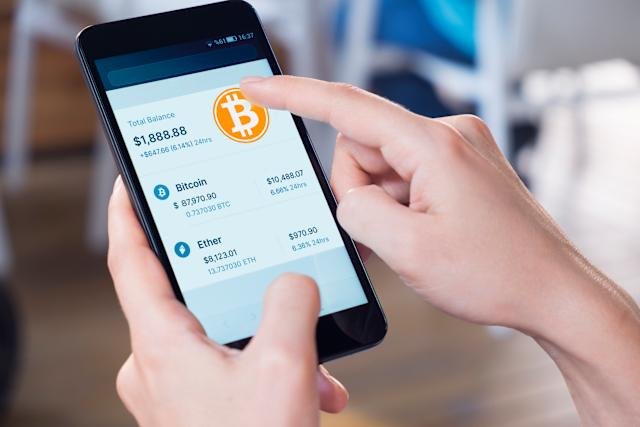Bitcoin continues to dominate the cryptocurrency market, but determining how much to invest requires balancing opportunity with caution.
At The Coin Investor, we cut through the noise to provide clear, actionable insights for both first-time buyers and seasoned traders.
With Bitcoin’s price influenced by market cap shifts, regulatory news, and institutional adoption (like BlackRock’s spot Bitcoin ETF), smart investing means understanding volatility, security features, and your own risk appetite. Whether you’re allocating $100 or $10,000, this guide breaks down the essentials—from dollar-cost averaging (DCA) to hardware wallets—to help you make confident financial decisions
How Much of Your Portfolio Should Be in Bitcoin?

We suggest new investors should limit Bitcoin to 5%–10% of their overall portfolio. This balances exposure to high returns with the safety of diversified assets like stocks or bonds.
When Should You Buy Bitcoin?

Timing your Bitcoin purchase depends on market conditions, your financial goals, and risk appetite.
While no one can predict the price of Bitcoin perfectly, historical patterns suggest buying during market downturns (like the January 2023 slump) often yields better long-term returns.
Monitor the crypto market cap, news about spot Bitcoin ETFs, and macroeconomic factors like interest rates.
For beginners, using dollar-cost averaging—investing smaller amounts regularly—reduces the impact of short-term volatility.
How Much Bitcoin Should I Buy?

There’s no one-size-fits-all answer, but common rules of thumb help. Financial advisors often recommend allocating 5%–30% of your portfolio to risky assets like Bitcoin, depending on your comfort with volatility.
If you’re new, start with a manageable amount (e.g., $100–$500) to test the waters. Always prioritize security: store BTC in a hardware wallet like Ledger or Trezor rather than leaving it on crypto exchanges.
Is Bitcoin A Good Investment?

Bitcoin’s role as a volatile asset class sparks debate among certified financial planners and investors.
Its future growth potential is tempered by high volatility, requiring careful planning to balance risks and rewards.
Bitcoin Pros
- Institutional Trust: Spot Bitcoin ETFs from firms like BlackRock and Fidelity have funneled billions into Bitcoin, boosting its market cap and legitimacy. The fixed supply (21 million coins) positions it as a hedge against inflation, unlike traditional financial products.
- Decentralized Security: Built on Blockchain technology, Bitcoin avoids central authority control, offering transparency and resilience against systemic failures. Hardware wallets like Trezor enhance security features, protecting against hackers.
- High Return Potential: Despite downturns (e.g., January 2025’s 20% slump), Bitcoin’s long-term high returns outperform stocks and gold. A common rule of thumb suggests allocating 5–30% of your overall portfolio for asymmetric growth.
Bitcoin Cons
- Regulatory Risks: Governments may impose strict rules, as seen with India’s 30% crypto tax, impacting bitcoin’s price and accessibility.
- Extreme Volatility: Short-term swings (e.g., $100,000 to $80,000 in 2025) make it a risky investment for unprepared investors. Unlike individual stocks, its value hinges on market sentiment, not cash flows.
- Technological Limits: Slow transaction speeds and high fees limit utility compared to smart contracts-based platforms.
Is Bitcoin a Good Investment or Speculation?

Bitcoin straddles both: its scarcity, institutional adoption (e.g., spot Bitcoin ETFs), and future growth potential position it as a long-term investment. However, high volatility and speculative trading driven by market sentiment classify it as a risky asset class.
What’s the Best Way to Invest in Bitcoin?

Use dollar-cost averaging (DCA) via crypto platforms like Binance to spread purchases and reduce timing risks.
Start with a manageable amount (e.g., 5% of your overall portfolio), prioritize security features (e.g., hardware wallets like Ledger), and consult a certified financial planner to align with your risk appetite.
9 Factors to Consider When Deciding How Much to Invest in Bitcoin

- Charting Your Financial Course Before Investing in Bitcoin: Secure an emergency fund and pay off high-interest debt first. Bitcoin should enhance, not replace, financial stability.
- Follow the 5% to 30% Rule for Bitcoin Investing: Young investors with a higher risk appetite might allocate 30%, while conservative portfolios stick to 5%.
- Start Small and Build Your Knowledge: Buy $50–$100 worth of Bitcoin initially. Learn how wallets, blockchain, and crypto exchanges work before scaling up.
- Use Dollar-Cost Averaging to Reduce Your Risk: Automate weekly/monthly buys via Cash App or Swan Bitcoin to smooth out price swings.
- Be Ready for Big Changes: Bitcoin’s price can plummet 40% in weeks. Only invest money you can afford to lose.
- Evaluate Your Comfort with Risk: If BTC’s volatility keeps you awake, reduce your allocation.
- Spread Out Your Investments to Diversify Risk: Pair Bitcoin with stocks, real estate, or stablecoins to avoid overexposure.
- Think About a Long-Term Plan: Hold Bitcoin for 5+ years to ride out downturns and benefit from future growth.
- Be Prepared for Volatility: Use stop-loss orders or stablecoins (Tether) to limit losses during crashes.
What Are The Best Platforms To Buy Bitcoin As A Beginner?

For new investors, selecting the right platform can make all the difference. Beginner-friendly crypto platforms like Binance, Coin Base, Swan Bitcoin, Cash App, and Robinhood are known for user-friendly interfaces and straightforward purchasing processes, making them solid choices to start your Bitcoin journey.
Each platform offers unique strengths, from automated dollar-cost averaging options to zero-fee purchases or quick mobile accessibility.
Reviewing platform features, fees, and security before purchasing will help ensure your first Bitcoin experience is smooth and safe.
Binance

Binance stands out for its competitive fee structure and adaptability to both novice and advanced traders.
The platform charges a standard spot trading fee of 0.1% for regular users, but this can drop to 0.075% if you pay fees using Binance’s native token, BNB.
High-volume traders benefit from VIP tiers, where fees decrease as trading activity increases—a feature that rewards consistent engagement. For example, reaching VIP Level 1 (30-day volume of $1M+) reduces taker fees to 0.07%.
Coinbase

Coinbase remains a top choice for first-time investors due to its intuitive interface and robust educational tools.
The platform’s Learn and Earn program rewards users with cryptocurrency for completing short lessons, effectively combining education with portfolio growth.
Security is a cornerstone of Coinbase’s appeal. It stores 98% of assets in offline cold wallets and offers insurance coverage, making it a trusted option for those wary of hackers.
Swan Bitcoin

Swan Bitcoin specializes in dollar-cost averaging (DCA), allowing users to automate recurring purchases with fees as low as 0.99% for transactions under $5,000.
This approach mitigates volatility risks, making it ideal for beginners prioritizing steady growth over speculative trading.
Unlike traditional exchanges, Swan focuses exclusively on Bitcoin, reducing distractions from altcoins and fostering a disciplined investment strategy.
Cash App

Cash App’s seamless integration with Square’s financial ecosystem makes it a convenient choice for Bitcoin newcomers.
Users can buy Bitcoin starting at $10 using a linked debit card, with purchases instantly accessible for spending or transferring.
While its 2.2% transaction fee is higher than some platforms, the app’s simplicity and direct banking integration appeal to those prioritizing ease over cost.
Additionally, Cash App supports Bitcoin withdrawals to external wallets, enhancing flexibility for long-term holders.
Robinhood

Robinhood offers commission-free Bitcoin trades, appealing to cost-conscious beginners.
The platform’s minimalist design simplifies buying and selling, though withdrawals require a minimum balance of 0.001 BTC.
Recent expansions, including a 2025 launch in Singapore via Bitstamp, highlight its growing footprint in the crypto space.
However, Robinhood lacks advanced features like staking or external wallet support, making it better suited for casual investors than long-term strategists.
FAQ’s:
Is $100 Enough to Invest in Bitcoin?
Yes, $100 is a solid starting point. Platforms like Coinbase and Cash App let you buy fractions of Bitcoin, making it accessible even with small amounts. This approach allows beginners to enter the crypto market without overcommitting funds.
Should I Invest in Bitcoin or Other Cryptocurrencies?
Bitcoin’s market cap and status as a store of value make it ideal for first-time investors. Once comfortable, diversify into altcoins like Ethereum or Solana for exposure to smart contracts and DeFi.
When Is the Best Time to Buy Bitcoin?
Consider buying during market downturns or when Bitcoin’s price stabilizes after a dip. Dollar-cost averaging (DCA) reduces timing risks by spreading purchases over weeks or months.
How Do I Know If I’m Investing Too Much in Bitcoin?
If Bitcoin exceeds 30% of your portfolio or price swings cause stress, you’re likely overexposed. Rebalance by diversifying into stocks, bonds, or stablecoins.
Can I Lose All My Money Investing in Bitcoin?
Yes. Bitcoin’s high volatility means prices can crash unexpectedly. Only invest a manageable amount you can afford to lose.
How Often Should I Add to My Bitcoin Investment?
Automate weekly or monthly purchases via DCA apps like Swan Bitcoin. This strategy smooths out volatility and builds holdings steadily.
Conclusion
Deciding how much Bitcoin to buy hinges on your financial goals, risk tolerance, and trust in blockchain technology’s future.
While Bitcoin offers high-reward potential, its volatility demands caution and careful planning.
At The Coin Investor, we advocate for a balanced approach: start small, prioritize security with hardware wallets, and use dollar-cost averaging to navigate market swings.
Whether you’re allocating 5% or 30% of your portfolio, informed decisions today can shape your financial freedom tomorrow.
